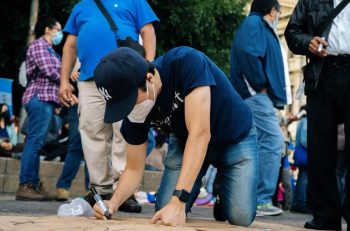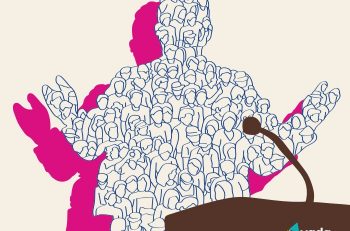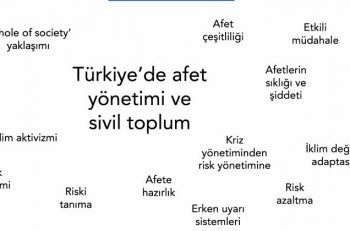What Does the Civil Society Needs and Motivation Survey Say?

Revealing the political, economic and social reasons affecting Non-Governmental Organizations (NGOs) is important for different target groups, including policy makers at national level, researchers, beneficiaries, donors and NGO workers. Because each of these groups has different perspectives on the political and social effectiveness of NGOs.
The Civil Society Needs and Motivation Survey, prepared by the Civil Society and Media Studies Association, reveals data that should be considered about the situation of NGOs. The fact that the research was conducted with a large sample group covering all areas in which NGOs in Turkey, including 552 participants and fellow citizen associations, operate in 79 provinces, further increases the importance of the obtained results.
In fact, all research on NGOs, both in other countries and in Turkey, contains some common findings. It is possible to collect the main problems encountered in the research under the following headlines:
- The inadequacy of the regulations in the national legislation or the incompatibility of the implementation with the legal framework,
- Regression on freedom of association, freedom of assembly and freedom of expression, which directly affect the effectiveness of NGOs in all aspects and determine the democratic standards in the relevant country,
- Difficulties in accessing decision makers and incorporating their demands into law and policy making,
- Barriers in accessing financial resources and ensuring the sustainability of activities.
It is possible to add a new problem area that we encounter more frequently today, including some European Union countries: Harassment of civil activists, including negative rhetoric to criminalize, de-legitimize and stigmatize NGOs. We can count Belarus, Hungary, Russia and Türkiye as examples of countries where this problem is currently experienced.
When we look at the Civil Society Needs and Motivation Survey, we see that the above 4 heads are reflected in the results of the research. In my opinion, the most striking result of the research is the one related to the evaluation of the impact of NGOs in the last 5 years. As stated in the research summary, there is a serious ‘confusion’ on this issue. The fact that the research was conducted with NGOs and that the results of the survey study are compatible with in-depth interviews require us to pay more attention to the ‘confusion’.
According to the results of the answers given to the question asked in the survey about whether the impact of civil society has increased in the last five years, approximately 68% of the participants think that its impact has increased or remained the same. Moreover, although the interviewees from Professional and Sector organizations and Politically Oriented NGOs stated that the impact decreased at a very high level (45.5% and 42.9%, respectively), this rate is 68%. The results, adjusted for the influence of these two groups, show that more than 70% of respondents felt that the impact of civil society remained the same or increased.
However, the last 5 years of Türkiye coincide with a period in which the transition from the parliamentary system to the presidential system, the state of emergency was implemented for 2 years, the influence of independent institutions including the Grand National Assembly of Türkiye, ministries and the Central Bank decreased, and the independence of the judiciary was discussed even before the society. Other studies in this area also reveal results regarding the shrinkage of the civil sphere. Political analysts, on the other hand, make evaluations regarding the increase in authoritarianism.
In a sense, this result also shows that NGOs do not have a more or less common analysis on issues that directly affect their conditions of existence. But this confusion in the analysis of the country’s general conditions is inconsistent with the results in other parts of the study. For example, participants think differently when evaluating the organizations, they are involved in, and they state that the influence of their organizations has decreased, their activity and social interaction have reduced.
In conclusion, this research shows that NGOs should talk more about the political, economic and social conditions surrounding them, generate ideas and make structural changes. Of course, all of this underlines that NGOs have the ability to contribute to change only if there is a democratic and transparent political system, everyone, including non-citizens, can make demands without any political or legal restrictions and their participation is not hindered. This research reveals that the above actions should be taken without ignoring the decisiveness of the democratic standards and political conditions in the given conditions regarding the effectiveness or the high collective motivation of NGOs, which are the tools of organized participation.
Photo: Rita Vicari
Writer: Nejat Taştan
*This content has been prepared in collaboration with Daktilo1984 and the Future of Civil Society Project.












Bizi Takip Edin